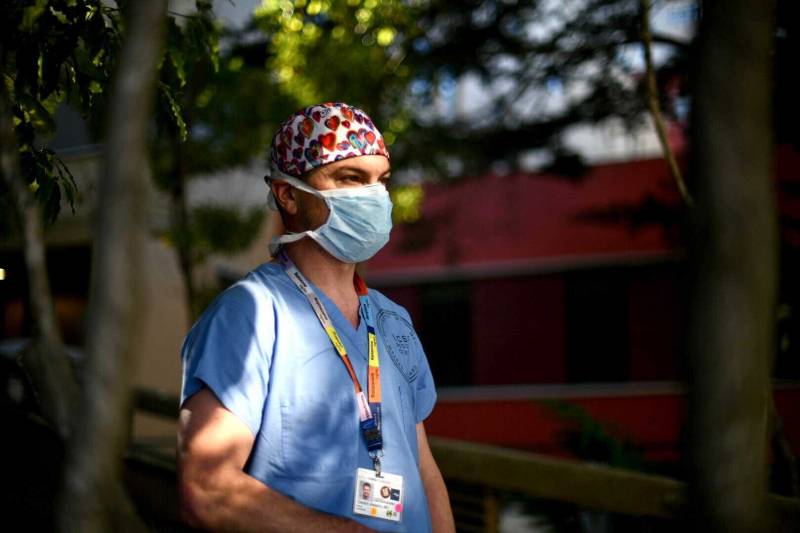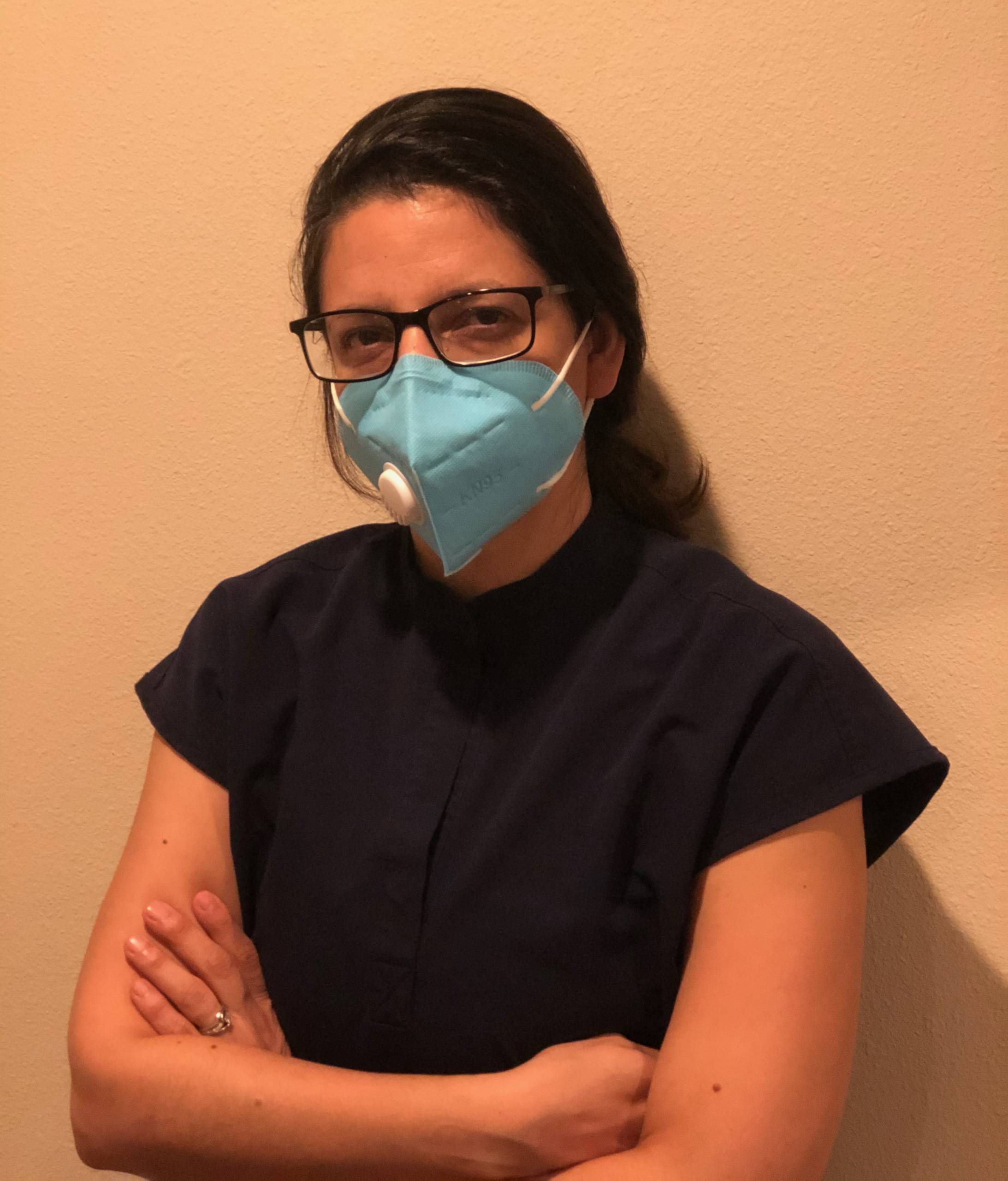The crush of COVID-19 patients from post-holiday surges continues to overwhelm California hospitals. The state passed a grim milestone this week, with more than 31,000 people dead from the virus. The state recorded an average of more than 500 deaths over the past seven days. In the Bay Area, Santa Clara County has run out of morgue space, and three 65-foot trailers have been brought in to house the deceased; the county may soon activate a “mass fatality plan.”
Exhausted Health Care Workers Feel Betrayed by Those Who Ignore COVID Rules

Besides patients and their families, no one is feeling the pain of this catastrophe more than health care workers. The onslaught has exhausted them, but many also use the word “betrayed” to describe their feelings toward the public, and they have grown angry at people for skirting safety rules because they know much of the suffering is avoidable.
Doctors, nurses and other front-line workers feel like they’re starting to crack.
“I have never lost so many patients in a short period of time,” said Dr. Dinora Chinchilla, an Orange County pulmonologist specializing in critical care. We have checked in regularly throughout the pandemic, and she called me recently on her drive home after a long shift, fighting back tears.
“I see sick, sick, sick, sick, sick and a lot of death,” she sputtered.
Chinchilla described the horrific situation at her hospital: ambulances lined up around the block, day and night. Patients queued in big pop-up tents. Halls overflowing with sick people. The criteria for who is admitted to the ICU has changed because there aren’t enough beds, meaning patients must be sicker than usual to qualify for critical care.
She and her colleagues are feeling it in a big way.
“We can see it in each other’s faces,” Chinchilla said. “I’ve had janitors look at me, and they’re like, ‘Oh, doc. You look so pale.’ ”
When Chinchilla arrives home at night, she tries to put on a good face for her 2-year-old daughter and 5-year-old son, but she often crumbles into a pile of tears as they rush toward her.
“I don’t want them to see me sad,” she said. “They give me a big hug, and I try to smile even though I’m crushed inside from what we are seeing at the hospital.”
‘It’s Very Demoralizing’

Back in the spring, Chinchilla felt supported in her community as a kind of hero. Banners flew around town celebrating health care workers. But now she feels resentful of the public because of its lax attitude toward stopping transmission.
“Every time I see people on social media having parties or gatherings, I literally say, ‘Unfriend, unfriend, unfriend.’ I just can’t take it anymore.”
Dr. Victor Cisneros, an emergency medicine physician in Orange County, recently urged folks to stay home over the holidays in an Instagram post. He was met by a profane attack full of pandemic denial.
He likens it to repudiating a soldier’s battlefield experience.
“It’s like people who are not on the ground saying, ‘This isn’t real. You’re not being shot at. This is fake,” Cisneros said.
He’s floored that people refuse to wear masks and continue to believe conspiracy theories like the idea that vaccines are laced with microchips.
“It’s very demoralizing when you’re doing all the hard work as a health care provider, and then there’s a stronghold on the other side increasing the spread,” he said.
‘The Pinnacle of Insult’
Doctors and nurses describe a profound disconnect between the reality inside hospitals and life on the streets.
“The public doesn’t see the people who are being rushed to the hospital who are like fishes out of water, who can’t breathe,” said Brittney Watson, an emergency room nurse in Oakland who says the current surge is upending her hospital.
She remembers the first time she was alone with a COVID patient who was dying. Instead of being surrounded by a large circle of friends and family, the patient was met by a nurse covered in plastic from head to toe.
“They couldn’t even see me smile,” said Watson. “They could only see this two-to three-inch window of my eyes and eyebrows above my mask.”
She says it feels like the virus is infiltrating every crevice of her workplace, like the walls are falling in. The facility is in the midst of its second internal outbreak, and health care workers themselves are falling ill.
Dr. Clay Josephy, a critical care fellow in San Francisco, says the situation is practically made to order to send an already exhausted workforce over the edge.
“To not believe in COVID at this point is the highest form of cognitive dysfunction, and by extension the pinnacle of insult to literally everyone, most especially health care workers,” he said.
Glint of Hope
The vaccine, at least, is here.
“I can’t overestimate the excitement and the hope that I have attached to this vaccine, and that other people in my position have,” said Dr. Dawn Harris, the chief of medicine at Sierra Nevada Memorial Hospital. “It’s the first time that we’ve used the word ‘hope.’ ”
At least one statistic, too, is pointing in the right direction. In the last few days, hospital admissions have dropped from about 3,500 per day to 2,500 across the state.
“To see a reduction in our hospital numbers in terms of our rate of rise is a very encouraging sign, but we are not out of the woods,” cautioned Dr. Mark Ghaly, secretary of California Health and Human Services Agency. “We know that there’s still a lot of COVID in our communities and people can easily transmit it. We must continue to keep our guard up.”
Plus, still ahead lies a possible New Year’s wave of cases to augment the Christmas surge. And there are more cold months to pass before the vaccine starts to slow the virus.
